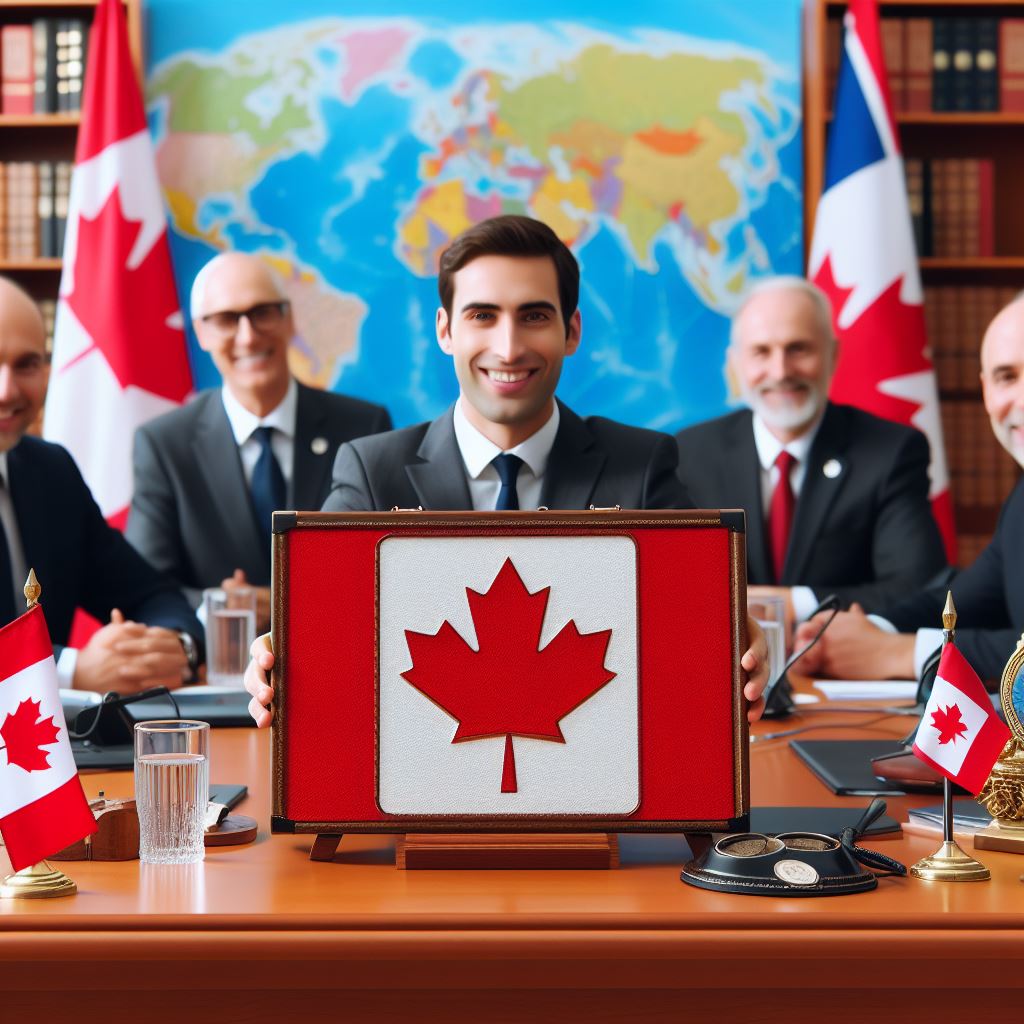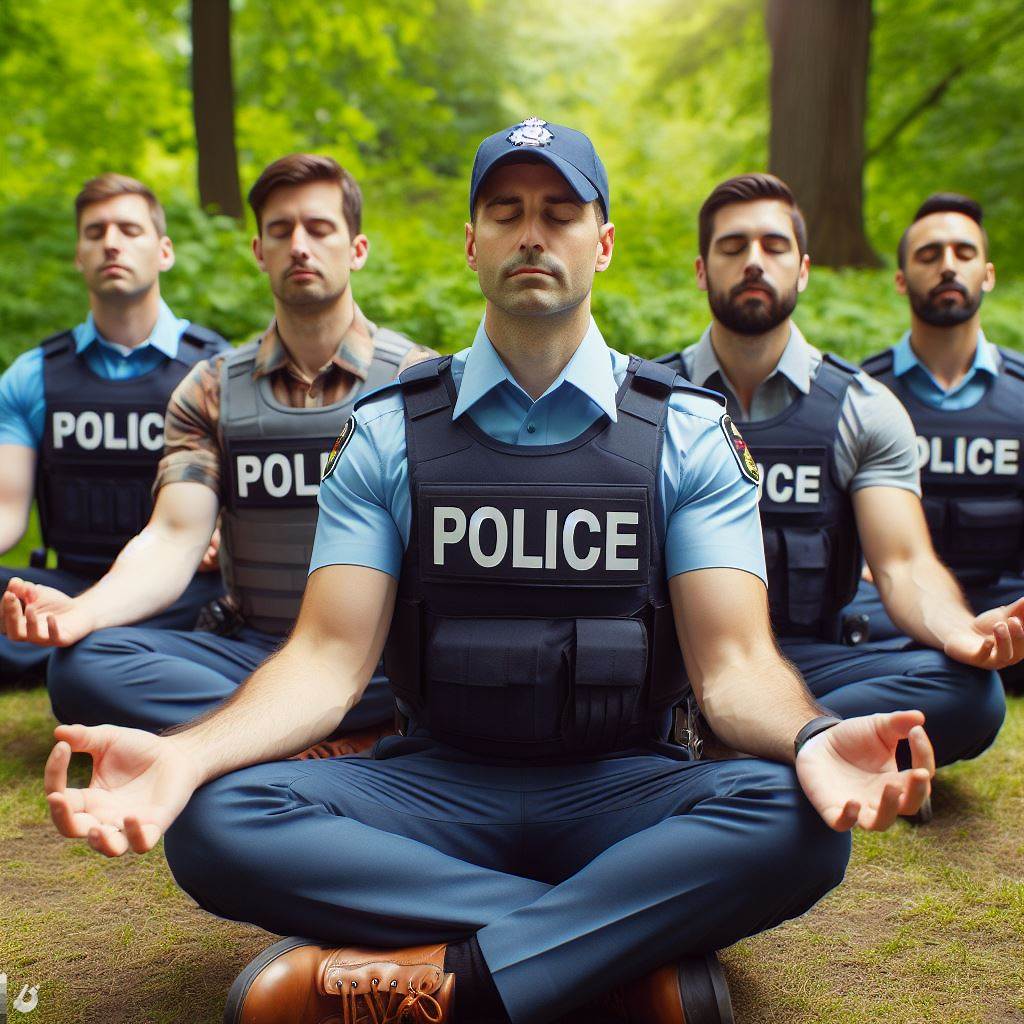Introduction
Cultural sensitivity refers to the awareness and understanding of different cultures.
Cultural sensitivity is vital in diplomacy as it promotes effective communication and prevents misunderstandings.
The purpose of this blog post is to provide tips on how to practice cultural sensitivity in diplomacy.
In the intricate landscape of international relations, cultural sensitivity stands as a cornerstone in the realm of diplomacy.
Navigating the complexities of diverse societies requires a nuanced understanding of cultural nuances, norms, and traditions.
In this context, the significance of cultivating cultural sensitivity cannot be overstated.
As diplomats engage with individuals from various backgrounds, embracing cultural awareness becomes a powerful tool for fostering mutual respect and understanding.
Beyond mere etiquette, a deep appreciation for cultural diversity enhances the effectiveness of diplomatic efforts, contributing to successful negotiations and conflict resolution.
This guide aims to provide insightful tips on fostering cultural sensitivity in diplomacy, recognizing its pivotal role in building effective bridges between nations and fostering meaningful relationships on the global stage.
From communication strategies to diplomatic protocol, we delve into practical advice to empower diplomats in navigating the intricate tapestry of international cultures.
As we explore the importance of cultural competence, we unravel the threads that weave together the fabric of successful diplomatic endeavors, promoting harmony and collaboration across borders.
Read: Career Paths: Beyond the Diplomat Role
Understanding Cultural Sensitivity in Diplomacy
Definition of cultural sensitivity in the context of diplomacy
Cultural sensitivity in diplomacy refers to the ability to understand, respect, and adapt to the cultural practices, beliefs, and values of different societies.
Recognition of diverse cultural practices, beliefs, and values
Diplomats must recognize and acknowledge the diverse cultural practices, beliefs, and values that exist across different countries and regions.
Awareness of one’s own biases and stereotypes
It is crucial for diplomats to be aware of their own biases and stereotypes towards different cultures in order to avoid misunderstandings or offensive behavior.
Skills required for effective cultural sensitivity in diplomacy
- Open-mindedness: Diplomats should approach cultural differences with an open mind and be willing to learn and adapt.
- Empathy: Understanding and empathizing with the perspectives and experiences of others can foster better cross-cultural relationships.
- Communication skills: Effective communication, including active listening and clear articulation, is essential for cultural sensitivity in diplomacy.
- Cultural knowledge: Diplomats should have a deep understanding of the cultural practices, customs, and etiquette of the countries they work with.
- Flexibility: Being flexible and adaptable in one’s approach to different cultures is key to successful diplomatic relationships.
- Respect: Respecting and valuing the cultural differences of others is crucial for building trust and maintaining positive relations.
- Conflict resolution skills: Diplomats should possess the ability to navigate cultural conflicts and find peaceful resolutions.
Cultural sensitivity in diplomacy is integral in fostering international cooperation, resolving conflicts, and building meaningful relationships between nations.
Understanding and respecting cultural differences can help diplomats navigate cultural nuances, avoid misunderstandings, and bridge divides between different societies.
Awareness of one’s own biases and stereotypes
Cultural sensitivity involves recognizing and acknowledging the diverse practices, beliefs, and values that exist across the globe.
By being aware of their own biases and stereotypes, diplomats can approach cultural differences with a genuine desire to learn and understand.
Skills required for effective cultural sensitivity in diplomacy
This requires diplomats to be open-minded, empathetic, and effective communicators.
Developing cultural knowledge is essential. Diplomats should invest time in learning about the cultural practices, customs, and etiquette of the countries they engage with.
They should also be flexible in their approach, adapting their behavior and communication style when necessary.
Respect is a fundamental aspect of cultural sensitivity. Diplomats must demonstrate respect for the traditions, customs, and beliefs of other cultures.
This involves avoiding judgment and valuing the perspectives of others.
Conflict resolution skills are also crucial. Diplomats need to navigate cultural conflicts with sensitivity and find peaceful resolutions that respect the interests of all parties involved.
Unlock Your Career Potential
Visualize a clear path to success with our tailored Career Consulting service. Personalized insights in just 1-3 days.
Get StartedIn short, cultural sensitivity plays a vital role in diplomacy.
It requires diplomats to recognize and respect diverse cultural practices, reflect on their own biases, and possess a range of skills such as open-mindedness, empathy, and effective communication.
By prioritizing cultural sensitivity, diplomats can establish stronger relationships with other nations and contribute to a more harmonious and interconnected world.
Read: Diplomatic Etiquette: Dos and Don’ts

Tips for Cultural Sensitivity in Diplomacy
Cultural sensitivity is an essential aspect of successful diplomacy.
Being aware of and respectful towards cultural differences can help build strong relationships, foster understanding, and facilitate effective communication between countries.
Here are some tips to enhance cultural sensitivity in diplomacy.
Conducting thorough research on the host country’s culture
Prior to engaging in diplomatic interactions, it is crucial to gather comprehensive knowledge about the host country’s culture.
This includes studying its history, traditions, and customs. Familiarize yourself with the social norms and etiquette observed by the locals.
Additionally, gaining an understanding of the religious practices and beliefs prevalent in the host country is essential.
Developing cross-cultural communication skills
Effective communication is key to successful diplomacy.
Develop your cross-cultural communication skills by actively listening and employing effective questioning techniques.
Avoid making assumptions and generalizations about the host country and its people.
It is crucial to use appropriate verbal and non-verbal communication that takes into account cultural differences and nuances.
Respecting cultural differences
Respect for cultural differences is vital in diplomatic engagements.
Avoid falling into the trap of ethnocentrism and cultural superiority, where you believe your culture is superior to others.
Instead, maintain an open-minded and tolerant attitude towards different cultures.
Embrace cultural relativism, which recognizes that each culture has its own unique values and norms.
Building relationships and establishing trust
Building strong relationships and establishing trust is fundamental in diplomacy.
Show patience and respect in your interactions, especially when dealing with cultural differences.
Display genuine interest in the host country’s culture and actively engage with its people.
Adapt to local practices and customs when necessary to demonstrate your willingness to understand and embrace their way of life.
Adapting negotiation and decision-making strategies
In diplomatic negotiations, it is crucial to consider cultural values and perspectives.
Different cultures may have distinct approaches to decision-making and conflict resolution.
Adopt a collaborative approach that respects cultural differences and seeks mutually beneficial outcomes.
Strive for win-win solutions that accommodate the interests and values of both parties involved in the negotiation.
By following these tips, diplomats can enhance cultural sensitivity and promote effective cross-cultural communication.
Cultivating a deep understanding and respect for the host country’s culture can pave the way for stronger relationships, trust, and ultimately, successful diplomatic outcomes.
Read: The Evolution of Diplomacy: A Canadian View
Case Studies on Cultural Sensitivity in Diplomacy
Example 1: Successful diplomatic negotiations due to cultural sensitivity
Explanation of the case
In a diplomatic negotiation between Country A and Country B, both parties were able to reach a mutually beneficial agreement.
Analysis of cultural factors that contributed to success
The success of this negotiation can be attributed to the cultural sensitivity displayed by the diplomats involved. They took the time to understand and respect each other’s cultural norms, values, and communication styles.
By recognizing and appreciating the cultural differences, the diplomats were able to establish trust and build rapport, leading to effective communication and problem-solving.
Additionally, cultural sensitivity helped prevent any unintentional misunderstandings or conflicts that could have hindered the negotiation process.
Example 2: Challenges faced due to cultural insensitivity
Description of the case
In a diplomatic meeting between Country X and Country Y, cultural insensitivity created challenges and strained the relationship between the two countries.
Examination of the consequences of cultural insensitivity
The lack of cultural sensitivity resulted in misunderstandings, misinterpretations, and a breakdown of effective communication.
Country X failed to understand and respect the cultural norms and values of Country Y, leading to offensive remarks and actions that were perceived as disrespectful.
As a consequence, the diplomatic relationship between the two countries became strained, hindering progress on important issues and increasing tensions.
Cultural sensitivity is essential in diplomacy as it significantly impacts the success of negotiations and the overall relationship between nations.
These case studies highlight the importance of understanding and respecting cultural differences in the diplomatic arena.
By embracing cultural sensitivity, diplomats can enhance communication, foster trust, and achieve mutually beneficial outcomes.
Read: Canadian Embassies Around the World: A Look
Conclusion
Cultural sensitivity is crucial in diplomacy as it fosters understanding and builds strong relationships.
To achieve cultural sensitivity, one must listen actively, research extensively, and adapt communication strategies.
By practicing cultural sensitivity, diplomats can navigate international relations with respect, avoiding misunderstandings and conflicts.
Cultural sensitivity is not just a soft skill; it is an integral part of effective diplomacy.
As diplomats, we must recognize that cultures vary widely and each has its unique values and norms.
By embracing cultural sensitivity, we can foster positive interactions and establish trust with individuals from diverse backgrounds.
Let us always remember that cultural understanding is the foundation of successful diplomacy.




